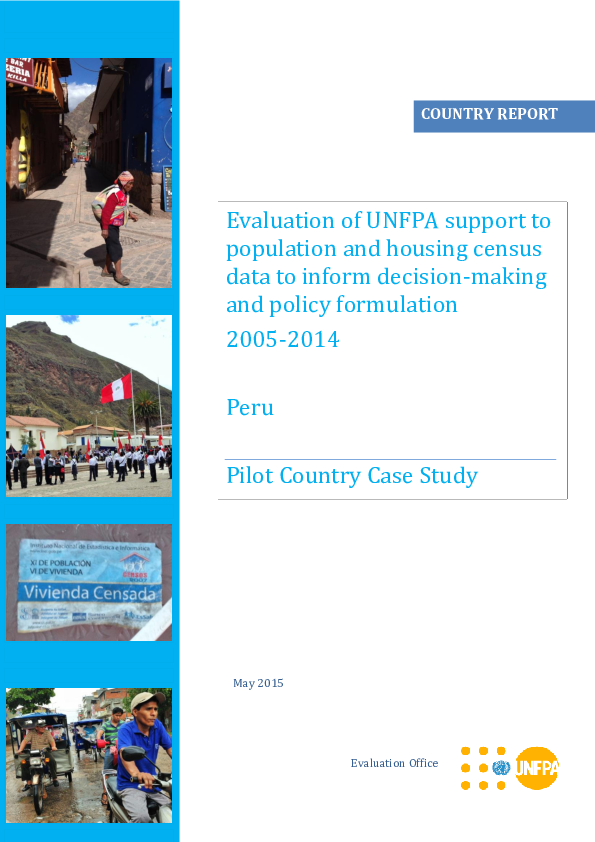
Evaluation of UNFPA support to population and housing census data to inform decision-making and policy formulation
Peru Country Case Study Report
Resource date: 09 March 2016
The emphasis of UNFPA work on strong and strategic partnerships (both at national and regional levels) and its flexible and participative approach to supporting the 2007 census in Peru were found to be central to the success of UNFPA programming and guaranteed clear alignment with the Peruvian government priorities. Equally, UNFPA programmatic support to census in Peru was aligned with UNFPA corporate priorities on improving data availability and use.
The Peru case illustrates the wide range of uses of census and related survey data within UNFPA programmatic areas and the role the country office can play in promoting its use during all stages of the census.
Due to a combination of UNFPA support and external factors, there has been a steady increase in the use of socio-economic and demographic data in Peru. UNFPA support geared at enhancing statistical literacy contributed to increasing the national use of data for drafting evidence-based policy, promoting human rights, and informing research in previously unexplored areas. Roadblocks to sustaining these advancements include the limited use of data at the decentralized level, lack of in-depth data analysis, and the absence of census updates between operations.
South-south cooperation has been highly valued by the National Statistical Office (INEI). However, UNFPA has focused primarily on brokering expertise, and supporting the INEI as a recipient of south-south cooperation, not as a provider. The potential for the country office to facilitate south-south cooperation has not, as such, been fully developed.
The comparative strengths of UNFPA support to census are associated with corporate assets, working approaches, networking strategies and social skills. The success of the modality of support in Peru is strongly linked to a distinctive way of approaching institutional dialogue and capacity development.
Related download
-
EN
Peru Country Case Study Report